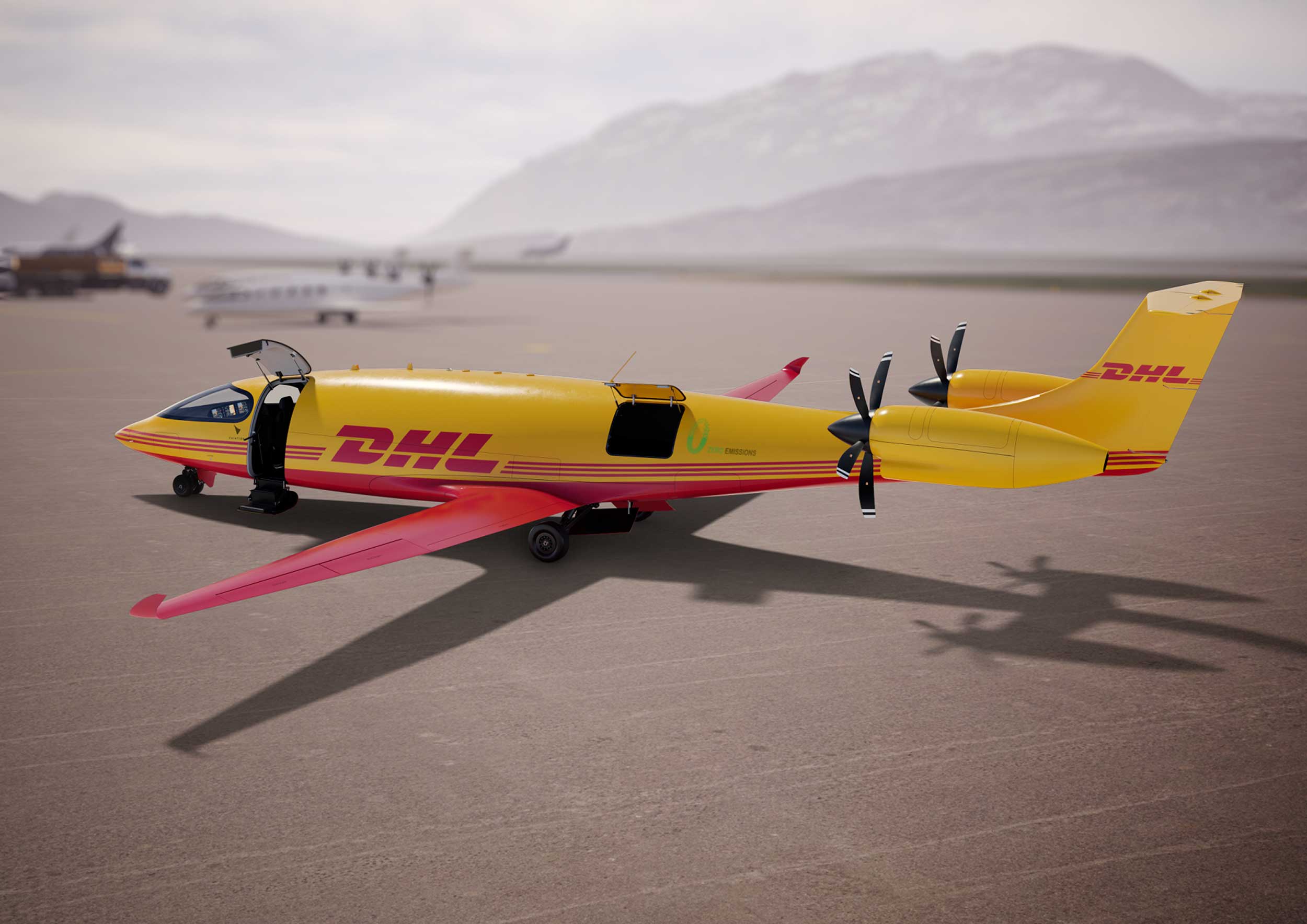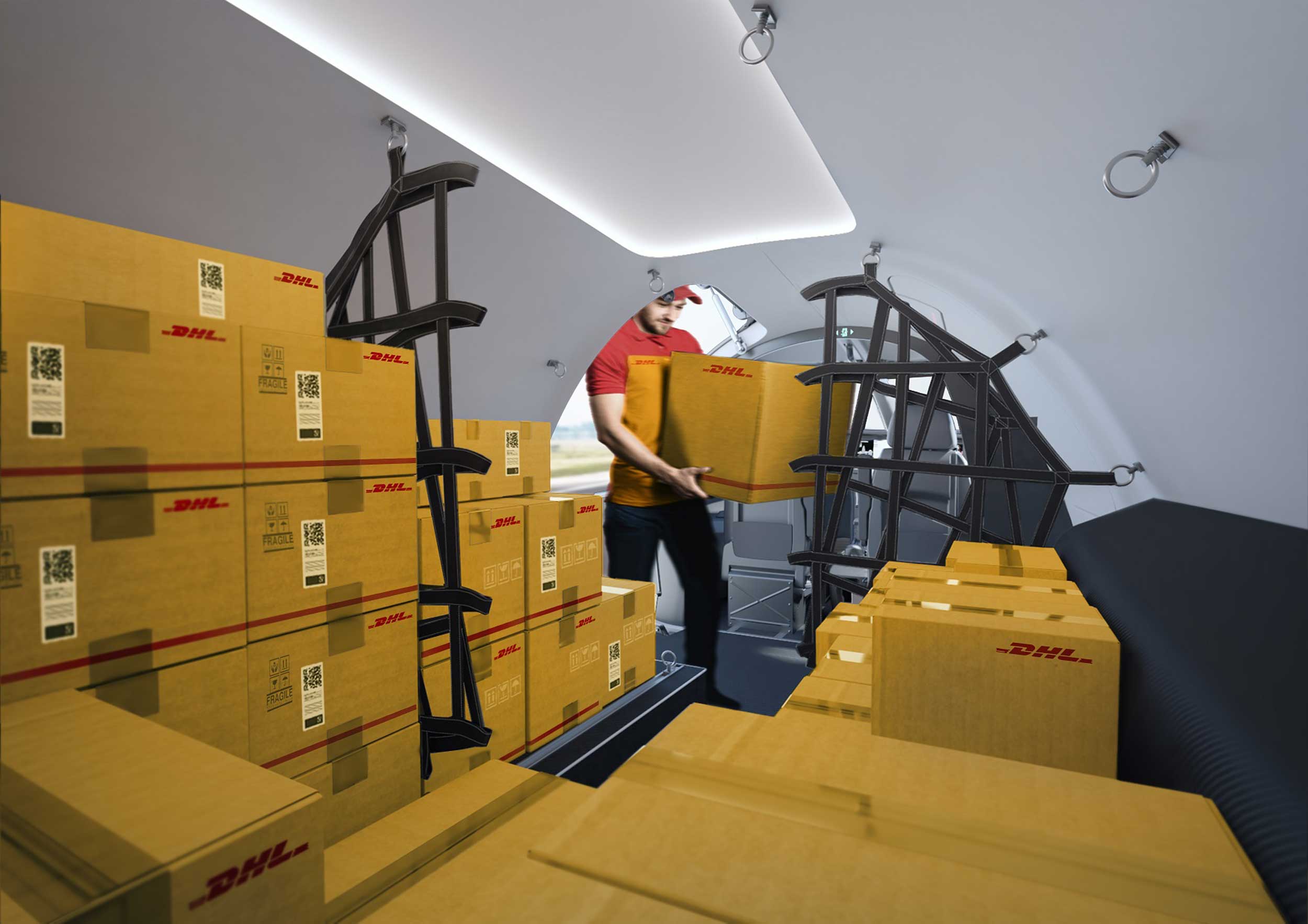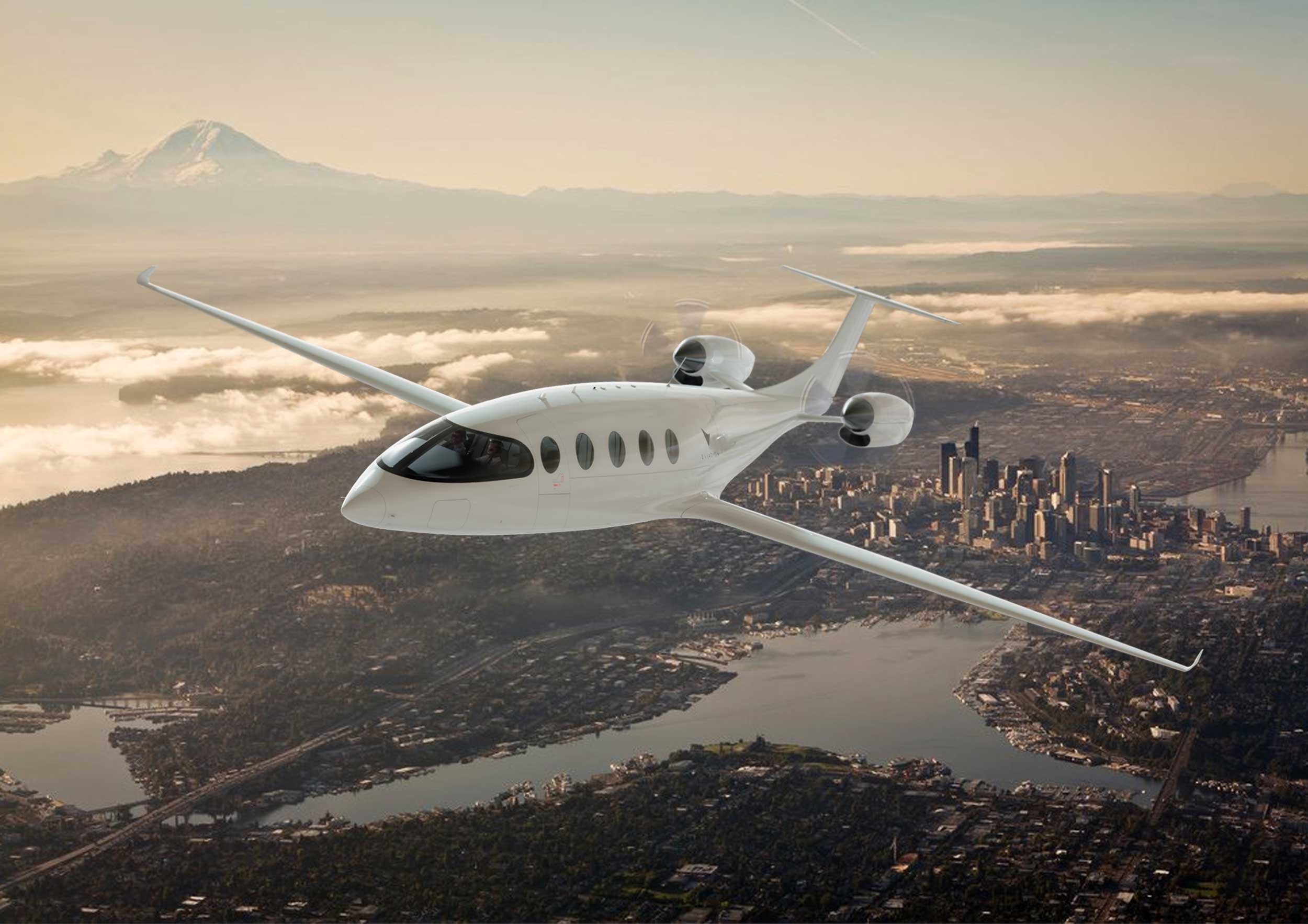 Logistics and delivery company DHL Express has ordered 12 all-electric cargo aircraft currently under development by Washington-based Eviation Aircraft with delivery of the first expected in 2024.
Logistics and delivery company DHL Express has ordered 12 all-electric cargo aircraft currently under development by Washington-based Eviation Aircraft with delivery of the first expected in 2024.
“We firmly believe in a future with zero-emission logistics,” said John Pearson, CEO of DHL Express.
“Therefore, our investments always follow the objective of improving our carbon footprint. On our way to clean logistics operations, the electrification of every transport mode plays a crucial role and will significantly contribute to our overall sustainability goal of zero emissions.”
Eviation’s aircraft is called Alice. In passenger configuration it can carry nine plus two crew. For cargo operations, it’s tripped of seats to carry a payload of 1,200kg (2,600 lb). Eviation says Alice requires 30 minutes or less to charge per flight hour and have a maximum range of up to 815km (440nm).
The aircraft is powered by two magni650 electric propulsion units from magniX. The fly-by-wire system is made by Honeywell and the high-energy density Alice battery system is made from currently available battery cells.

“From day one, we set an audacious goal to transform the aviation industry and create a new era with electric aircraft,” said Eviation CEO Omer Bar-Yohay.
“Partnering with companies like DHL, leaders in sustainable e-cargo transportation, is a testament that the electric era is upon us. This announcement is a significant milestone on our quest to transform the future of flight across the globe.”

The passenger version of Eviation’s electric Alice will carry up to nine passengers and two crew
Travis Cobb, EVP Global Network Operations and Aviation for DHL Express, said, “With Alice’s range and capacity, this is a fantastic sustainable solution for our global network.
“Our aspiration is to make a substantial contribution in reducing our carbon footprint, and these advancements in fleet and technology will go a long way in achieving further carbon reductions.
“For us and our customers, this is a very important step in our decarbonisation journey and a step forward for the aviation industry as a whole.”
DHL is investing 7 billion euros by 2030 to reduce its CO2 emissions. The funds will go in particular towards electrification of last-mile delivery fleet, sustainable aviation fuels and climate-neutral buildings.
